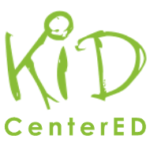In the realm of special education, mediation serves as a crucial tool that bridges the gaps between families and educational institutions. Working from a pediatric educational center, an educational advocate often sees firsthand the challenges and frustrations that families face when advocating for appropriate educational accommodations for their children. Mediation emerges as a powerful solution, providing a neutral and supportive environment where disputes can be resolved amicably.
Mediation in special education is more than just a method to settle disputes—it’s a proactive approach to fostering collaboration. When families and schools engage in mediation, they participate in a facilitated dialogue, guided by a mediator who ensures all voices are heard. This process not only helps in resolving the immediate issues at hand, such as disagreements over Individualized Education Programs (IEPs) or placement decisions, but it also preserves and often strengthens the relationship between the school and the family.
One of the key benefits of mediation is its ability to transform a potentially adversarial confrontation into a cooperative discussion focused on the best interests of the student. This shift is vital in special education, where the educational and emotional needs of students are complex and deeply personal. Through mediation, solutions are tailored to meet the specific needs of the student, crafted with the insights and concerns of both the family and educational professionals in mind.
Moreover, the confidentiality and voluntary nature of mediation assure all parties that their concerns can be expressed openly without fear of repercussion. This aspect is crucial for honest communication and for building trust, a cornerstone of any effective educational strategy.
Educational advocates, by facilitating these mediations, play an integral role. They not only guide the process but also ensure that the legal rights of the student are upheld and that the solutions adhere to the best educational practices. By doing so, they help lay the groundwork for a more responsive and inclusive educational environment where every student has the opportunity to succeed.
A family should consider mediation in the context of special education when they encounter disagreements or conflicts with the school regarding their child’s educational needs. Here are several scenarios where mediation can be particularly beneficial:
- Disagreements Over the IEP: If there are conflicts about the development, review, or implementation of an Individualized Education Program (IEP), mediation can help clarify the needs of the student and find a mutually agreeable path forward.
- Placement Concerns: When there’s a dispute over the most appropriate educational setting or services for a child, mediation can provide a forum for discussing these issues in detail and reaching a consensus.
- Disciplinary Actions: If a child with special needs faces disciplinary measures, mediation can address the appropriateness of the actions and explore alternative strategies that might better serve the child’s educational and developmental needs.
- Service Provision: Disputes regarding the type or extent of services, like speech therapy, occupational therapy, or aides, are common areas where mediation can help negotiate solutions that satisfy all parties involved.
- Communication Breakdowns: Sometimes, ongoing communication issues between a family and school staff can hinder a child’s educational progress. Mediation can help improve communication and establish more effective collaboration.
- Before Due Process: Mediation is a less adversarial and often less expensive step before engaging in more formal legal processes like due process hearings or litigation.
By considering mediation, families can often find faster, less contentious, and more effective resolutions to disputes, helping to ensure that the child’s education continues as smoothly as possible.

